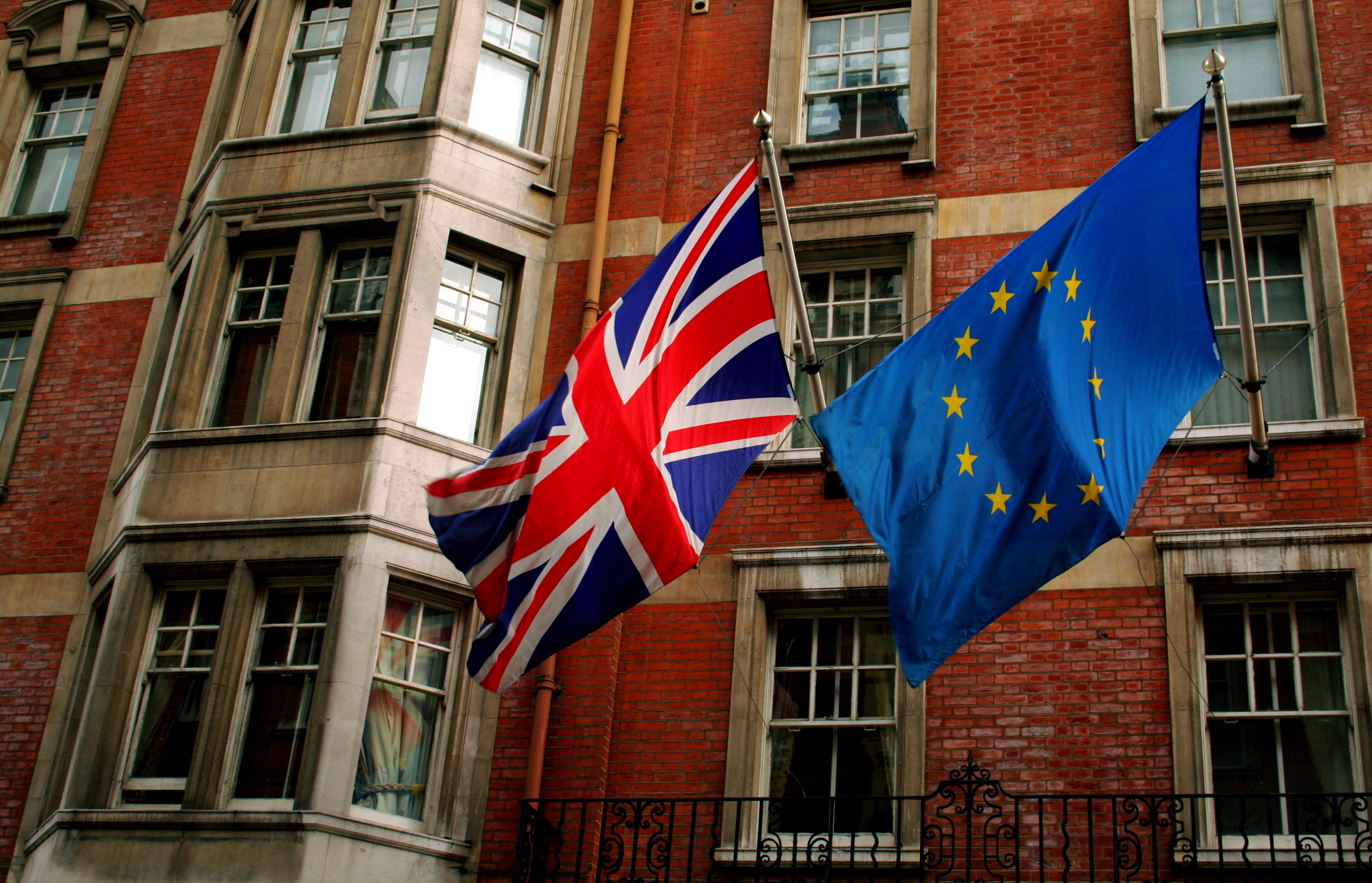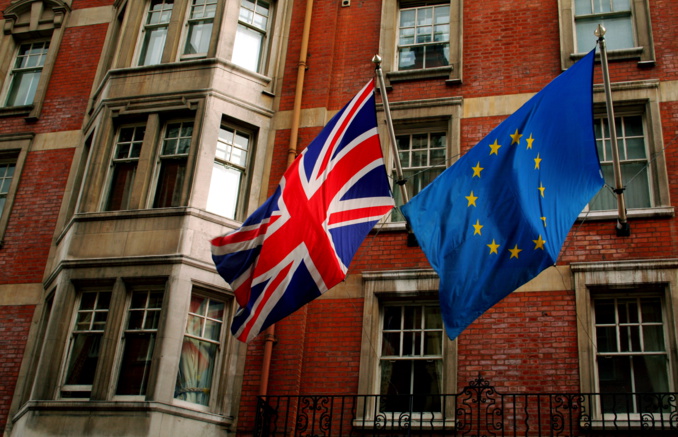Le Figaro
Some people always think that the grass is always greener on the other side of the fence. This is true for the French Euro-skeptics, who are very happy with the camp’s victory of Britain’s "exit" from the EU. Encouraged by this unexpected outcome, all of them, or almost all, began to agitate for holding a similar referendum in France, moreover, in the shortest possible time.
"As I have required for many years, it is necessary to hold such a referendum in France and other EU countries," - immediately responded leader of "National Front" Marine Le Pen. "From "Brexit" to "Frexit": it is time to bring democracy into our country", - said Marion Maréchal-Le Pen, MP of the National Assembly from the Department of Vaucluse...It is a real shock. Despite the fact that results of many polls in recent weeks had to get alarmed, the camp’s victory of "exit" on the British referendum was a real surprise. In France, the news perceived in two ways: some applauded, some regretted the incident. It looks like this event very clearly divided the French party into "pro-government" and populists with supporters of independence.
Deutsche Welle
Results of the voting are a real catastrophe. The catastrophe for everyone. Depletion is waiting for the country. And that is very important. The United Kingdom could simply fall apart, because the Scots are mostly for staying in the EU, and can break away from the UK. Calls for a united Ireland may increase, as the EU’s external border after the exit will intersect its center.
At least equally serious consequences will also affect the rest of the EU. There won’t be only a lack of "net contributors" (EU member countries, which invest in the general budget of the European Union more money than get from there). The real foreign-policy, diplomatic and military heavyweight will disappear; the country, which has made the EU more world-open and more competitor-oriented. Germany will particularly deeply feel absence of Britain. We have enough countries with great joy to "save" the EU from globalization; countries for which the fiscal discipline is an unknown concept. Here, London and Berlin are pursuing the same goals.
Perhaps the political consequence is the most important, and it is not so easy to realize. Britain’s case may be contagious. Of course, new precedents may not necessarily follow immediately. But other countries could with threaten similar referendums and, given the UK’s example, could claim for themselves all sorts of exceptions and special rights. As a result, the EU will become an organization of which one will extract a personal benefit, and, at the same time, will be carefree.
The New York Times
Britain voted in favor of withdrawal from the EU. The historic decision, of course, will change the country’s position in the world, shake the continent and convulse the political elites of the West...Despite the fact that previously the opinion polls showed that any of the parties could win, the outcome shook much of the UK, Europe, the transatlantic alliance, highlighting power of indignation with elites, strength of nationalist sentiment in the period of economic and cultural dislocation.
For the European Union, the result is a catastrophe. It raises questions about direction of movement, cohesion and future of this block, which was built on liberal values, collective sovereignty, and, together with NATO, is a vital component of Europe’s postwar structure...The loss of Britain is an enormous blow to the unit’s credibility, which is already under pressure due to low growth, high unemployment, debt problems in Greece and the Ukrainian crisis.
Reuters
Results of the Thursday’s referendum were a stunning demonstration of rejection of national elites, which causes the most powerful blow to the European project on strengthening of unity since the Second World War.
Withdrawal from the EU could cost Britain entering the open EU single market, and means that the country will have to seek new trade agreements with countries around the world. President Obama said that Britain, if it wants to enter into an agreement with the United States, will have to "stand in the queue."
For its part, the EU will be politically and economically weakened by the departure of not just one of the most pro-market of its members, but also a permanent UN Security Council member with veto power and a powerful army. In addition, all in one go, EU will lose a sixth of its production volume.
Some people always think that the grass is always greener on the other side of the fence. This is true for the French Euro-skeptics, who are very happy with the camp’s victory of Britain’s "exit" from the EU. Encouraged by this unexpected outcome, all of them, or almost all, began to agitate for holding a similar referendum in France, moreover, in the shortest possible time.
"As I have required for many years, it is necessary to hold such a referendum in France and other EU countries," - immediately responded leader of "National Front" Marine Le Pen. "From "Brexit" to "Frexit": it is time to bring democracy into our country", - said Marion Maréchal-Le Pen, MP of the National Assembly from the Department of Vaucluse...It is a real shock. Despite the fact that results of many polls in recent weeks had to get alarmed, the camp’s victory of "exit" on the British referendum was a real surprise. In France, the news perceived in two ways: some applauded, some regretted the incident. It looks like this event very clearly divided the French party into "pro-government" and populists with supporters of independence.
Deutsche Welle
Results of the voting are a real catastrophe. The catastrophe for everyone. Depletion is waiting for the country. And that is very important. The United Kingdom could simply fall apart, because the Scots are mostly for staying in the EU, and can break away from the UK. Calls for a united Ireland may increase, as the EU’s external border after the exit will intersect its center.
At least equally serious consequences will also affect the rest of the EU. There won’t be only a lack of "net contributors" (EU member countries, which invest in the general budget of the European Union more money than get from there). The real foreign-policy, diplomatic and military heavyweight will disappear; the country, which has made the EU more world-open and more competitor-oriented. Germany will particularly deeply feel absence of Britain. We have enough countries with great joy to "save" the EU from globalization; countries for which the fiscal discipline is an unknown concept. Here, London and Berlin are pursuing the same goals.
Perhaps the political consequence is the most important, and it is not so easy to realize. Britain’s case may be contagious. Of course, new precedents may not necessarily follow immediately. But other countries could with threaten similar referendums and, given the UK’s example, could claim for themselves all sorts of exceptions and special rights. As a result, the EU will become an organization of which one will extract a personal benefit, and, at the same time, will be carefree.
The New York Times
Britain voted in favor of withdrawal from the EU. The historic decision, of course, will change the country’s position in the world, shake the continent and convulse the political elites of the West...Despite the fact that previously the opinion polls showed that any of the parties could win, the outcome shook much of the UK, Europe, the transatlantic alliance, highlighting power of indignation with elites, strength of nationalist sentiment in the period of economic and cultural dislocation.
For the European Union, the result is a catastrophe. It raises questions about direction of movement, cohesion and future of this block, which was built on liberal values, collective sovereignty, and, together with NATO, is a vital component of Europe’s postwar structure...The loss of Britain is an enormous blow to the unit’s credibility, which is already under pressure due to low growth, high unemployment, debt problems in Greece and the Ukrainian crisis.
Reuters
Results of the Thursday’s referendum were a stunning demonstration of rejection of national elites, which causes the most powerful blow to the European project on strengthening of unity since the Second World War.
Withdrawal from the EU could cost Britain entering the open EU single market, and means that the country will have to seek new trade agreements with countries around the world. President Obama said that Britain, if it wants to enter into an agreement with the United States, will have to "stand in the queue."
For its part, the EU will be politically and economically weakened by the departure of not just one of the most pro-market of its members, but also a permanent UN Security Council member with veto power and a powerful army. In addition, all in one go, EU will lose a sixth of its production volume.



















